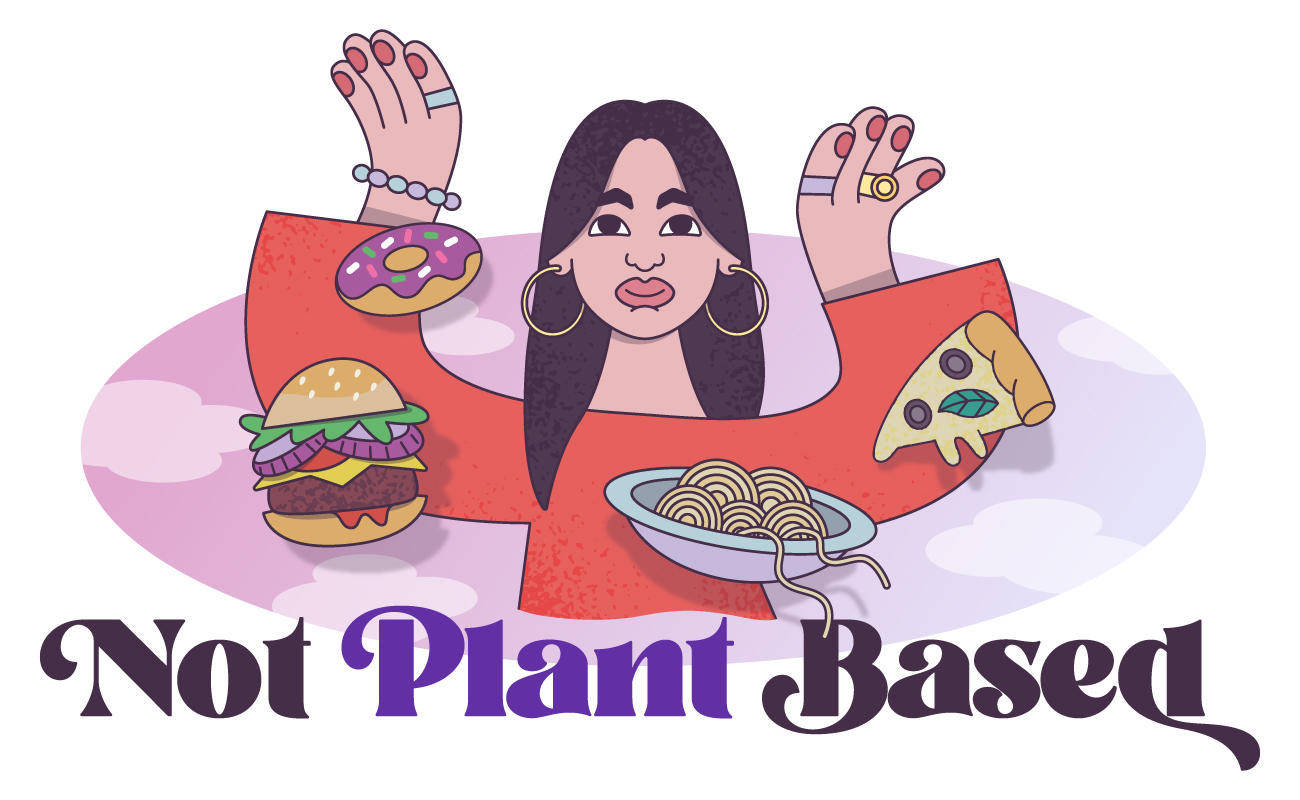
A recent BBC3 documentary, Clean Eating’s Dirty Secrets, highlighted the potentially dangerous nature of the surge in ‘clean eating’ and so-called ‘wellness’ trends. The documentary featured Vlogger and “Big Sister of the Internet”, Grace Victory and followed her as she embarked on a variety of faddy, trend-driven diets. Needless to say, Grace ended the documentary exhausted, hungry and with a much more complicated relationship with food than when she began her ‘journey’. Since the programme aired, several articles by eating disorder experts have surfaced commenting on the misleading and unhelpful information on such ‘clean eating’ websites.
As someone who has witnessed, first hand, the effects of inaccurate and unfound dietary messages on a vulnerable, anxiety-prone brain, I would argue that, yes: ‘clean eating’ IS damaging. Massively so, in fact. Desperate to find out if the eating disorders experts refuted my beliefs, I sought one out to speak to.
Demetra Brege is a Therapy Lead (Psychotherapist and Family Therapist) and works within the Children and Adolescent Mental Health services in central London. Demetra has more than 10 years experience of working with young people who suffer from eating disorders and has witnessed hundreds of patients come through the service and result in a happier, healthier version of themselves.

“I would love to get rid of all the things that weren’t true. I want to get rid of things that aren’t science. Things that are not science are being disguised as science and taken out of context. Generally, that’s not good for us. If you think about it, all these messages asking what is healthy eating? It isn’t helpful to anyone. I don’t think they’re particularly helpful to people who are overweight either. Are people curious about the things that they read? We must look at the research in depth – what was the motivation for the study? Was it with human beings? What sort of human beings?
Anorexia will take advantage of things. Anorexia doesn’t tell you to eat fat, but you need fat, it’s essential. People think fat is bad for you. Personally, I am concerned about people not being able to have a variety of fats, food cooked in fats e.t.c. We don’t know exactly what is a ‘good fat’ and what is a ‘bad fat’.
They [patients] tend to follow the vegan bloggers in particular and I think it can go too far.
My feeling is that it makes it harder for partners or parents to detect that their child is having eating difficulties rather than normally experimenting with food. In the beginning, it’s hard to see. If your 16-year-old comes home and says, ‘I’ve decided not to eat so much junk’ the fact that there’s an eating difficulty flies under the radar because it seems normal and everybody is doing it. A lot of young people will try and pick that up.
The problem is the anecdotal. someone suggests you try something if you’re having a particular issue. Perhaps you’re lactose intolerant, they may suggest. Then the young person may try cutting that out of their diet and begin to maybe feel a bit better because the anxiety passes, purely because they think they’re doing something about it. Then they start to be afraid of Lactose – and then maybe afraid of other things. I have seen that pattern – there’s a fear of eating something but I don’t know how that fear got there. It’s easily done, for example, I have a gastero-intestral disease and some random person I knew who hasn’t been to medical school once told me I should have a faecal transplant. I think, if you or your child is in discomfort, then you need to seek medical advice and go to an actual Dietitian rather than somebody that’s done a little course.
Gluten-free foods generally don’t taste that nice! Things that were intended to have gluten in them, have gluten in them for a reason! I feel sorry for the people who are sufferers of coeliac disease because they’re missing out on all the tasty things.
Lots of people eat exactly the same thing for breakfast everyday, mostly because they’re lazy! The difference with eating disorders is, if I was at a place where they didn’t have what I have for breakfast, I would be able to eat something else. Can you go out to eat with your friends? If they’re out of your lactose free yoghurt, can you eat a regular one? We know there are vulnerability factors – for instance, being rigid, anxious, impulsive or risk averse. Anorexia is like, here I have the answer to your problems. You feel a bit better because you’re doing something and it becomes the solution, until it’s a much bigger problem in itself but you don’t realise until it’s too late.
You should eat a variety of things and be flexible
My job makes me listen to all the conversations that we have and the way we talk about food in our bodies. A couple of Januarys ago, I went to a Pilates class with four other women – all of them in way better shape than me. They all talked about how they ate too much over the holidays and said that they needed to be more careful and do more exercise. I remember feeling, ‘this is terrible!’ Actually, it’s probably very normal for conversation these days, usually food talk is small talk, simply because there’s nothing else to say! If we listen to the messages we send ourselves and think, what do they really mean? If you really, really listened and analysed the way we talk, you realise it’s not realistic.
Anorexia sends out pretty selective messages to young people and those who are susceptible to eating disorders tend to be the type of people who think they can ‘solve’ problems on their own. You should do and eat a variety of things, be flexible and well-adjusted and more able to have relationships with people – that’s key. In eating disorders, the family changes over time to cope with it. Every family has a dance, but the eating disorder changes the music.“




A while back I found a website for an actual mental health professional that was claiming to “cure” anorexia by “introducing her patients to clean eating” the testimonials were actually heartbreaking. She merely changed the focus of the disordered eating, they still didn’t have a healthy relationship with food. It took me over a decade to deal with my anorexia, and she was bragging about it taking mere weeks, because she wasn’t actually helping.
Very well put incites. In a world full of social media led fad diets, I just wish more people could understand the harm they are doing to their body and mind. Living as a family ‘dancing’ with anorexia/bulimia i know how difficult it is for everyone not just those suffering. Every day is a battle for us all. As a mother it is heartbreaking. I encourage anyone who thinks they or someone they know/love is showing disordered eating to seek help as soon as possible. ❤️
I completely agree with what you are saying here. However my own daughter has battled with an eating disorder since her mid teens. She started with a bowl condition at the beginning of puberty. The consultants sent her to a dietitian who identified dairy as a trigger so she was told to avoid, put on calcium supplements and advised on alternatives. When she went on to develop an eating disorder later, the team zoned straight into her avoidance of dairy and another dietitian told her to eat it again. Her bowel symptoms returned but no one would listen to her as they just saw it as disordered eating. Subsequently she had all her control taken away, felt invisible and unheard to the point that her eating disorder got drastically worse. She is still trying to sort out her bowel condition with a very supportive GI consultant. She manages her disordered eating and body dismorphia but it’s not easy as stress is a major trigger for it all. I think compassion and excitement listening skills are important for anyone treating eating disorders. Being Hurd and understood is essential.